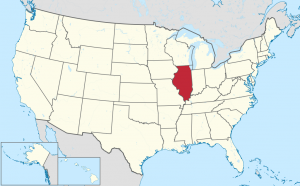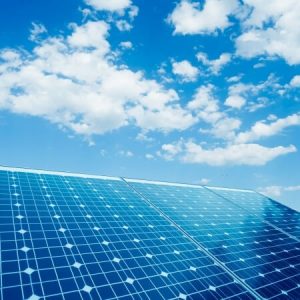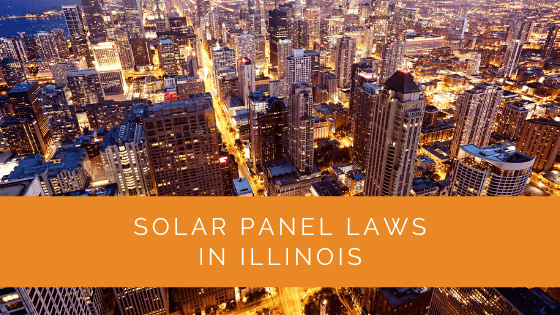 Solar policies are crucial for introducing solar panel laws in a state. Illinois already had strict solar policies that allowed the state government to bring changes in the solar panel laws. The state adapted to changing solar laws efficiently. It now has the most solar capacity systems among its competitors, Wisconsin and Minnesota. This three-state region has numerous similarities regarding state laws and practices regarding the planning, zoning, and permitting solar energy development.
Solar policies are crucial for introducing solar panel laws in a state. Illinois already had strict solar policies that allowed the state government to bring changes in the solar panel laws. The state adapted to changing solar laws efficiently. It now has the most solar capacity systems among its competitors, Wisconsin and Minnesota. This three-state region has numerous similarities regarding state laws and practices regarding the planning, zoning, and permitting solar energy development.
Contents
Key Takeaways:
- Due to its efficient solar policies, Illinois has become a leader in solar energy adoption among neighboring states like Wisconsin and Minnesota.
- The state’s solar policies encompass comprehensive planning, zoning regulations, and permitting requirements, promoting responsible solar panel installation.
- Illinois has introduced various policies and incentives, including a Renewable Energy Portfolio Standard and financing programs, to encourage the use of solar energy and achieve its renewable energy goals.
Planning
Illinois has a comprehensive plan guide that is a tool for everyone who wants to install solar panel systems in their homes or buildings. It outlines all the considerations and factors institutions and individuals need to consider before installing these panels. The guide also specifies the solar energy objectives of the state. This helps residents understand why the state government introduced law changes regarding solar energy.
Zoning
The state government has the authority to regulate the solar panel zones in Illinois. Different areas have different solar panel laws because of the height and location of the buildings. Although the state government allows everyone to install solar panels in their homes and buildings, it also has the right to check the authenticity of the installation. This helps to make sure that everyone follows the installation guidelines correctly. The laws are tailor-made to suit everyone. However, there are a few restricted areas where building owners need special permission before installing solar panels in Illinois.
Permitting
Every individual and institution will require the state’s approval for installing solar panels on their properties. You cannot buy a set of solar panels and install them on your home’s roof without permission. Every contractor, municipality, individual, and institution must notify the state government before installing solar panels. The approval doesn’t take long. You may have to make a few changes regarding the height of the cells or the number of cells you use in a property.
Solar Policies in Illinois
As mentioned, Illinois has the maximum number of installed solar capacity systems in the three-state region. According to the recent trend, Illinois has convinced most residents to shift to solar energy systems. This has increased the demand for different types of solar panels in the state. Experts believe the demand will still rise because of the widespread popularity of solar energy. Plus, with the recent amendments in the solar policies, both solar panel manufacturers and Illinois residents feel they would benefit from the law changes.
Many policies introduced by the state government of Illinois agree to expand the use of solar energy in the future.
- Renewable Energy Portfolio Standard: According to the Public Acts 095-1027 & 096-0159 of Illinois, meeting at least 25% of the state’s energy needs through renewable energy sources is mandatory. This includes using solar energy systems and low-energy appliances. Out of 25%, 6% of the energy should come from solar energy. That makes it 1.5% of 25%. The solar policy also comes with a Future Energy Jobs Bill that indicates significant amendments to the policies if Illinois can achieve its 25% goal.
- Homeowners’ Solar Rights Act: No homeowners’ association or any other entity can prohibit homeowners from installing or using solar energy systems. Illinois encourages individuals and institutions to adapt to the policy changes so that they can install solar panels on their properties. The homeowners association cannot prevent families from installing these panels. Families can directly report to the state government if they face any challenges while installing or after installing these systems.
- Special Assessment for Solar Energy Systems: The statement is that the government is trying to implement the solar panel laws as quickly as possible. They have gone to the extent of providing a special assessment of the solar energy systems in properties for tax purposes. This will help buildings and homeowners relax during their tax-filing period.
The Future Energy Jobs Bill came into action back in 2016. It brought about several changes in the energy consumption reforms. The bill established many solar energy goals, various budgets for implementing solar development, and different methods to achieve the goals.

Financing Solar Development
Bringing enormous reforms in solar energy systems in an entire state requires significant money. Fortunately, the Illinois state government has various incentives to finance solar development and help reach its goal. Some of the financing systems that they introduced are as follows:
- Solar Energy Rebate Program: Illinois has had an ongoing rebate program since 2015. However, using solar energy was not so popular back then. But with the recent mandate, more and more people will benefit from the Solar Energy Rebate Program. The Illinois Power Authority will also purchase multiple solar renewable energy credits. This means families and institutions can share extra solar energy and earn money from it.
- PACE: The Public Act 096-0481 allows the state government to consent to voluntary agreements with various property owners for financing energy-efficient systems and solar energy panels.
The recent solar panel laws aim to benefit every resident of Illinois financially. They can save thousands in the future if they can invest a little right now.
Case Study: Residential Solar Installation in Illinois
Background
A suburban family in Illinois decided to transition to solar energy to reduce their carbon footprint and take advantage of the state’s favorable solar policies. They were motivated by the potential cost savings and environmental benefits, coupled with Illinois’ comprehensive support for solar energy through incentives and streamlined regulations.
Project Overview
The project involved installing a 6 kW solar panel system on a single-family home in Springfield, Illinois. The family chose Solar Panels Network USA due to our reputation for high-quality installations and our deep understanding of local solar laws.
Implementation
Planning and Zoning:
The initial phase involved thorough planning and compliance with local zoning regulations. Our team conducted a detailed site assessment to determine the optimal placement of the panels, ensuring they would receive maximum sunlight while adhering to height and setback requirements stipulated by the local authorities. This process was facilitated by Illinois’ clear zoning guidelines, which provided a roadmap for compliant installation.
Permitting:
Securing the necessary permits was a critical step. Illinois’ efficient permitting process was advantageous, allowing us to obtain approval within a few weeks. We coordinated closely with the local municipality, providing all required documentation, including engineering plans and energy production estimates.
Installation:
Once permits were in hand, our installation team got to work. The installation took three days and involved mounting 20 high-efficiency photovoltaic panels on the south-facing roof. The system included a smart inverter to optimize energy conversion and monitor performance in real-time.
Financing:
The family benefited from Illinois’ Solar Energy Rebate Program, which provided a significant rebate on the installation cost. Additionally, they leveraged the Property Assessed Clean Energy (PACE) financing program, allowing them to finance the installation through their property taxes, making the transition to solar more affordable.
Results
Post-installation, the family experienced immediate benefits. Their electricity bills were reduced by approximately 60%, equating to substantial annual savings. The solar panel system generated excess energy during peak sunlight hours, which was fed back into the grid, earning the family credits under the net metering policy. This not only offset their energy costs but also contributed to Illinois’ renewable energy goals.
The system’s performance monitoring showed it was on track to produce 8,000 kWh annually, significantly reducing the household’s carbon footprint. The installation also increased the property’s value, making it more attractive should they decide to sell in the future.
Summary
This case study demonstrates the practical benefits and financial incentives of solar energy adoption in Illinois. Through careful planning, compliance with local regulations, and utilizing state-sponsored financing options, the family achieved significant energy cost savings and contributed to environmental sustainability. The success of this project underscores Illinois’ leadership in promoting solar energy and sets a precedent for other homeowners considering similar investments.
Expert Insights From Our Solar Panel Installers About Solar Panel Laws in Illinois
Understanding the zoning regulations in Illinois is critical for a smooth installation process. These rules ensure that installations are both efficient and compliant with local standards, which not only helps in maximizing energy production but also maintains the aesthetic and structural integrity of the neighborhood.
The permitting process in Illinois, while rigorous, ultimately benefits the consumer by ensuring that all installations meet safety and performance standards. This comprehensive approach is one reason why Illinois leads in solar capacity among its neighbors.
The Renewable Energy Portfolio Standard is a game-changer for Illinois. By mandating that a significant portion of energy comes from renewable sources, it drives both residential and commercial sectors to adopt solar, contributing to a greener, more sustainable future.
Experience Solar Excellence with Us!
Trust in Solar Panels Network USA, where our seasoned experts deliver top-quality solar solutions for homes and businesses nationwide. With a legacy of countless successful installations and a commitment to sustainable energy, we’re your reliable partner in the solar journey. Ready for a brighter, eco-friendly future? Call us now at (855) 427-0058 and harness the power of the sun!
Map image by Wikimedia Commons User: TUBS / CC-BY-SA-3.0
About the Author
Solar Panels Network USA stands at the forefront of solar energy solutions, driven by a team of seasoned solar engineers and energy consultants. With over decades of experience in delivering high-quality solar installations and maintenance, we are committed to promoting sustainable energy through customer-centric, tailored solutions. Our articles reflect this commitment, crafted collaboratively by experts to provide accurate, up-to-date insights into solar technology, ensuring our readers are well-informed and empowered in their solar energy decisions.

